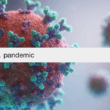
Inflammatory Bowel Disease (IBD) represents a group of intestinal disorders that cause prolonged inflammation of the digestive tract. The two primary types of IBD are Crohn’s disease and ulcerative colitis. This comprehensive guide aims to provide insights into the prevention and management of IBD, incorporating relevant lifestyle factors, symptoms, treatments, and preventive measures.
Understanding Inflammatory Bowel Disease
What is IBD?
Inflammatory Bowel Diseases are chronic conditions that cause inflammation in parts of the gastrointestinal tract. Crohn’s disease can affect any segment of the digestive tract, while ulcerative colitis is usually confined to the colon and rectum.
Symptoms of IBD
Common symptoms include persistent diarrhea, abdominal pain, rectal bleeding, weight loss, and fatigue. These symptoms can fluctuate in severity and may lead to complications like anemia.
Causes and Risk Factors
While the exact causes of IBD are unknown, it involves an abnormal immune system response. Genetic factors, environmental triggers, and lifestyle choices are also believed to play roles in the development of these diseases.
Lifestyle Factors Influencing IBD
Diet and Nutrition
Diet plays a critical role in managing IBD. Some foods may aggravate symptoms, while others can provide relief. A balanced diet rich in fruits, vegetables, and whole grains is generally recommended. It’s important to identify and avoid personal trigger foods.
Stress and IBD
Stress can exacerbate IBD symptoms, though it is not a direct cause. Effective stress management strategies include relaxation techniques, regular physical activity, and adequate sleep.
Preventive Strategies for IBD
Early Detection
Recognizing the early signs of IBD for prevention and seeking prompt medical advice can lead to better management outcomes. Periodic screenings are vital, especially for those with a family history of the disease.
Regular Medical Consultations
Regular consultations with healthcare providers are crucial for monitoring the condition and adjusting treatment plans as needed.
Treatment and Management
Medications
Treatment typically involves medication to reduce inflammation and suppress the immune system. Anti-inflammatory drugs and immune system suppressors are commonly prescribed.
Surgical Options
In severe cases, surgery might be necessary. For ulcerative colitis, this can mean removing the entire colon, while surgery for Crohn’s disease usually involves removing the damaged parts of the digestive tract.
The Role of the Digestive System in IBD
Gut Health and IBD
A healthy gut microbiome is vital in managing IBD. Probiotics and prebiotics can help maintain a balanced gut flora, which is crucial for digestive health.
Complications in the Digestive Tract
IBD can lead to complications such as strictures, fistulas, and an increased risk of colon cancer. Regular monitoring and medical interventions can help manage these risks.
Lifestyle Modifications for IBD Prevention
Importance of a Healthy Lifestyle
Adopting a healthy lifestyle can significantly impact the management and prevention of IBD. This includes maintaining a balanced diet, regular exercise, and avoiding smoking.
Role of Environmental Factors
While not entirely understood, environmental factors like pollution and diet can influence the development of IBD. Limiting exposure to potential environmental triggers can be beneficial.
Holistic and Complementary Therapies
Alternative Approaches
Alongside conventional treatments, some individuals find relief in acupuncture, herbal remedies, or dietary supplements. However, these should be discussed with a healthcare provider before use.
Mind-Body Practices
Mind-body practices such as yoga, meditation, and tai chi can help manage stress and may have positive effects on IBD symptoms.
Empowering Patients Through Education
Learning About IBD
Educating oneself about IBD, its symptoms, and treatment options is crucial. This knowledge can empower patients to make informed decisions about their health.
Support Systems
Joining support groups and connecting with others who have IBD can provide emotional support and valuable information sharing.
Frequently Asked Questions
How do you treat inflammation of the bowel?
Amino salicylates, such as mesalamine (Delzicol, Rowasa, and others), balsalazide (Colazal), and olsalazine (Dipentum), are anti-inflammatory agents. Corticosteroid courses with time limits are another method for inducing remission. Steroids suppress the immune system in addition to their anti-inflammatory properties.
What foods should be avoided with inflammatory bowel disease?
Anybody's colon can become irritated by alcohol, caffeine, and spicy foods. Therefore, if you have inflammatory bowel disease, the issues may get worse. Fiber, sugar, and fat are all more difficult to digest. Therefore, you might need to limit your intake of foods high in these categories or consume sources with higher contents occasionally.
Can IBD be managed without medication?
According to Dr. Moses, medicinal diets are also a very effective way to reduce inflammation and can be used in mild to moderate cases of IBD in place of steroids. These diets function by excluding specific foods that are known to worsen symptoms of inflammatory bowel disease (IBD) and including whole foods that are good for gut health.
Conclusion: A Proactive Approach to IBD
Managing and preventing inflammatory bowel disease requires a multifaceted approach that includes understanding the condition, making informed lifestyle choices, and adhering to medical treatments. By staying proactive and informed, individuals with IBD can lead fulfilling lives while effectively managing their condition. Remember, each person’s experience with IBD is unique, and treatment and management strategies should be personalized to individual needs and circumstances.



